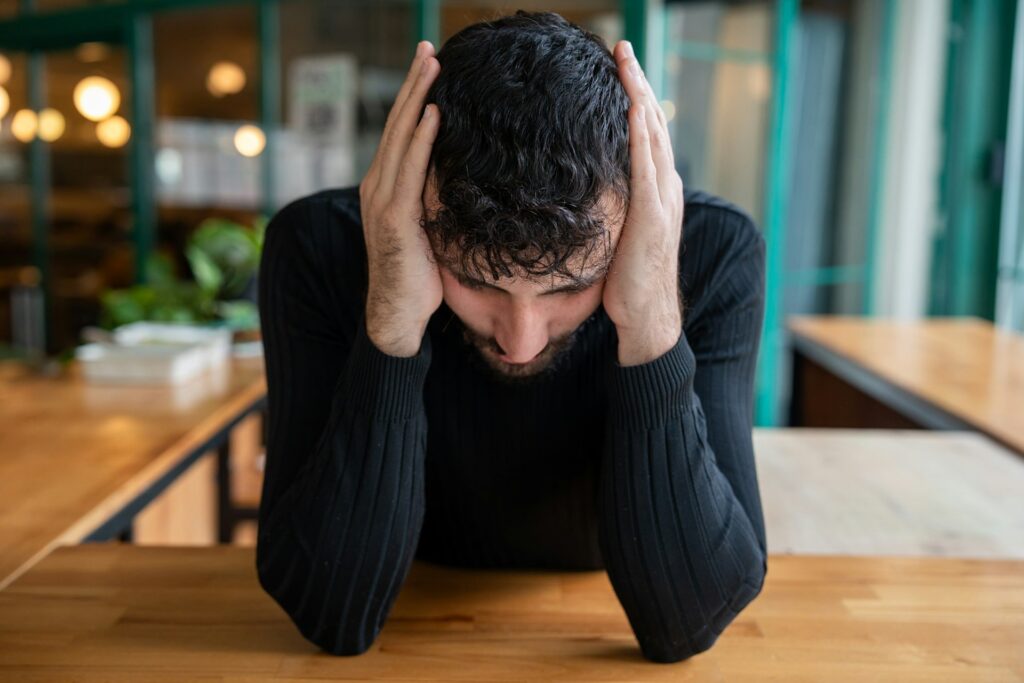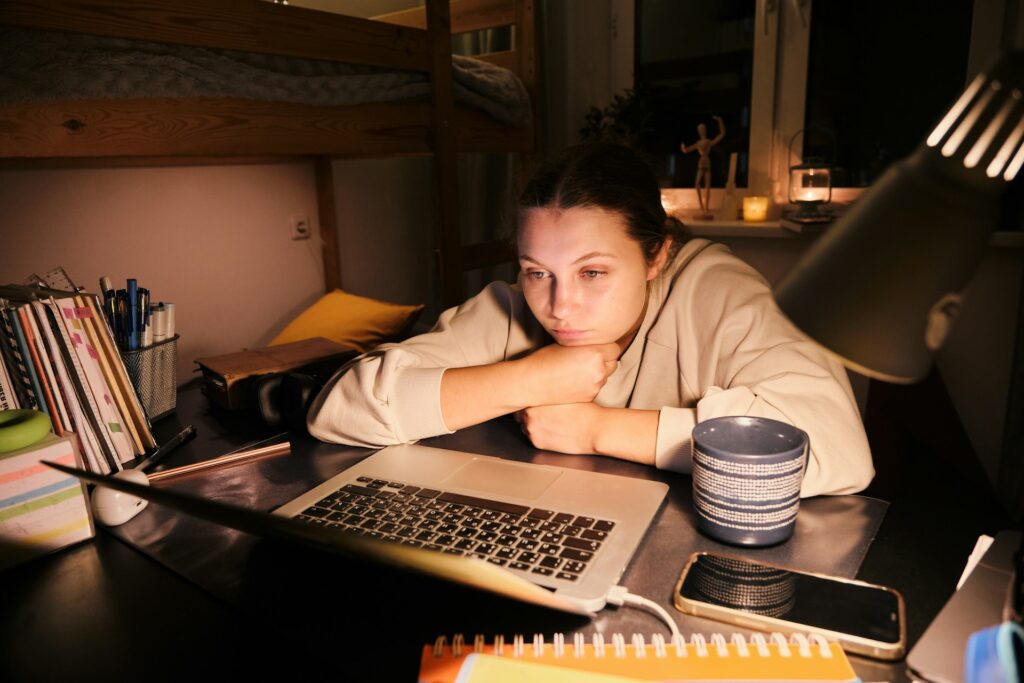Social anxiety doesn’t just mean you get a little shy or nervous before a big event.

It’s a deep, persistent worry about how other people see you and what they think of you, and it can turn even tiny interactions into full-body stress. If you live with it, you’ll know it’s not about not wanting connection—it’s about being scared that you’ll mess it up somehow. Here are the everyday things that can quietly feel way bigger when you’re carrying that kind of anxiety around.
1. Making small talk with strangers

It sounds simple enough. Chat about the weather, compliment someone’s shoes, comment on the queue. Of course, when you have social anxiety, small talk can feel like navigating a minefield where every word could come out wrong. Instead of feeling light and breezy, casual conversations can leave you overthinking every pause, every laugh, every raised eyebrow. What other people see as harmless chatter often feels like a high-stakes performance in your head.
2. Answering phone calls unexpectedly

Even a perfectly friendly call from someone you know can spike your anxiety if you weren’t mentally prepared for it. Hearing your phone ring out of nowhere often feels like an alarm going off in your nervous system. It’s not about rudeness or avoiding people. It’s about the jolt of panic that comes with feeling caught off guard, and the fear you’ll stumble through the conversation or not be “on” enough.
3. Walking into a room full of people already talking

Whether it’s a party, a meeting, or even a casual gathering, stepping into an environment where everyone already knows each other can feel painfully exposing. You instantly become hyperaware of your every move. It’s not just nerves—it’s that feeling of sticking out, of being “the new one” under an invisible spotlight. Even when no one’s judging you, it can be exhausting convincing your brain that you’re safe.
4. Introducing yourself to new people

Most people find introductions a little awkward. But for someone with social anxiety, saying your name and a fun fact about yourself can feel like public speaking at a high-pressure event you didn’t rehearse for. The fear of coming off boring, weird, or forgettable hijacks your focus, making it hard to actually listen or relax into the moment. What’s supposed to be easy often feels like a mental obstacle course.
5. Eating in front of other people

It’s just a meal, but when you have social anxiety, eating around other people can feel strangely vulnerable. You’re suddenly hyper-aware of how you chew, whether you’re messy, or if you’re taking too big of bites. Instead of enjoying the food or the company, you might find yourself stuck in your own head, worrying that you look awkward—or worse, that everyone’s secretly noticing.
6. Being the centre of attention (even briefly)

Getting sung “Happy Birthday,” having everyone turn to you during an icebreaker, being asked to share an opinion in a meeting—all of it can trigger a fight-or-flight response that feels wildly disproportionate. It’s not about hating attention. It’s about the overwhelming pressure to say or do the “right” thing, and the crushing fear that you’ll be remembered forever for getting it wrong.
7. Having to make decisions in a group

Choosing a restaurant, picking a movie, even suggesting a meeting time—when you have social anxiety, these small decisions can feel loaded. What if everyone hates your choice? What if you seem bossy or selfish? Instead of feeling empowered, you might freeze up or defer to other people, just to avoid the imagined risk of disappointing anyone. It’s easier to be easy-going than risk feeling responsible for someone else’s unhappiness.
8. Receiving compliments face-to-face

You want to appreciate kind words. You do. But when someone compliments you, your brain often short-circuits. Do you say thank you? Do you deflect? Do you immediately point out how it’s not a big deal? Instead of feeling good, the attention can feel uncomfortable, sparking a flurry of self-consciousness that lingers long after the conversation moves on.
9. Group video calls

At first, working or socialising online felt like it would be easier. But video calls brought a new kind of anxiety—the feeling of being “on display” while everyone can see your face (and your reactions) up close. It’s not just awkwardness; it’s the exhausting mental strain of monitoring your own expressions, worrying if you look engaged enough, and silently panicking when you have to unmute and speak.
10. Being late to anything

Running a few minutes late might be mildly stressful for most people, but for someone with social anxiety, it can feel like a disaster. You imagine everyone judging you, labelling you as irresponsible or rude. Even if no one actually notices, your own self-criticism takes over, making it hard to recover and enjoy the event. Being late isn’t just inconvenient—it can derail your entire emotional state.
11. Having to make small talk while waiting for something

Waiting in line, sitting in a waiting room, standing around at a work event—all of these moments often involve spontaneous small talk, and that unpredictability can feel overwhelming when you have social anxiety. Instead of filling the time with easy conversation, you might find yourself rehearsing sentences in your head, panicking about awkward silences, or desperately hoping someone else takes the lead.
12. Correcting someone when they’re wrong

Even minor corrections like pointing out a misspelled name or a wrong time can feel terrifying. What if they get defensive? What if you look arrogant or petty? Instead of speaking up, you might find yourself swallowing small discomforts just to keep the peace. You might know you’re right, but you’re scared of the social consequences of proving it.
13. Being the first to arrive somewhere

Walking into a restaurant, party, or event and being the first one there can spark instant panic. Where do you sit? What do you do with yourself? Will people think you’re weird for being too early? Those few minutes of uncertainty can feel painfully exposed, as if a spotlight is following your every move—even when, logically, you know no one else cares that much.
14. Ending a conversation at the right time

Knowing when and how to gracefully exit a conversation can feel like an impossible art when you have social anxiety. You don’t want to seem rude, abrupt, or awkward, but staying too long can feel just as uncomfortable. Instead of naturally winding down, you might overthink your exit strategy to the point of complete exhaustion, worrying that you either seemed disinterested or clingy, even when the reality is far less dramatic.


